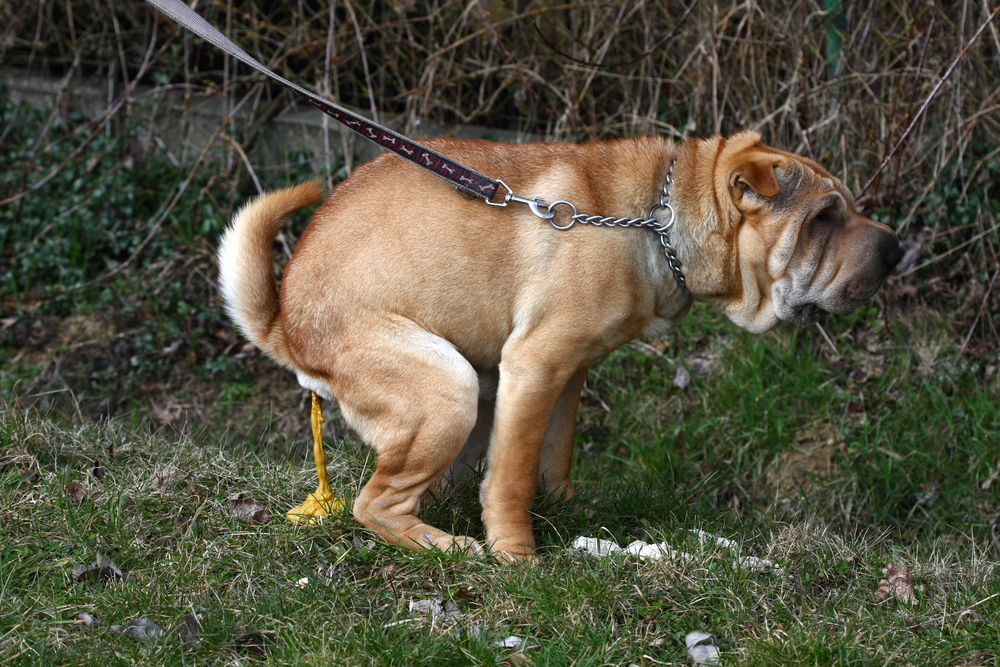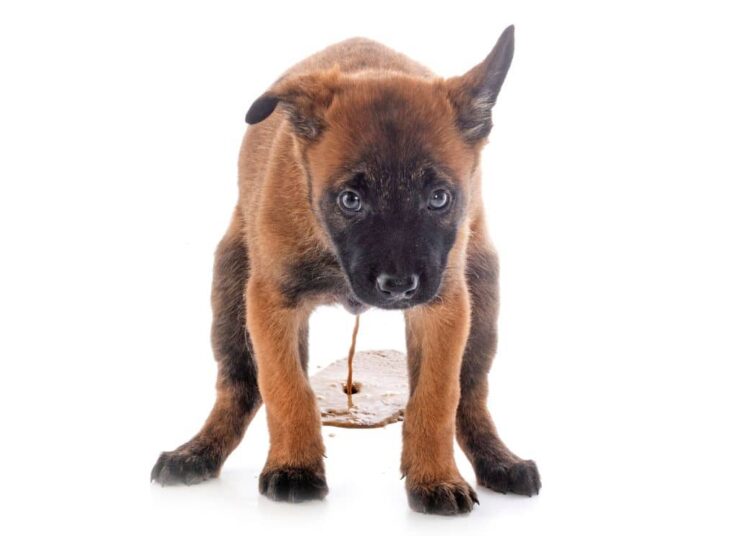Dog diarrhea refers to the frequent passage of loose, watery stool in dogs. It is a common digestive problem that can be caused by various factors, including dietary changes, infections, parasites, and underlying health conditions. Diarrhea can be acute, lasting for a short period, or chronic, persisting for an extended period.
Common Causes of Dog Diarrhea
Dog diarrhea can have multiple causes, and it is essential to identify the underlying factor to determine the appropriate treatment. Some common causes of dog diarrhea include:
- Dietary Changes: Abrupt changes in a dog’s diet, introduction of new foods, or consumption of spoiled or contaminated food can lead to digestive upset and diarrhea.
- Infections: Bacterial, viral, and parasitic infections can cause diarrhea in dogs. Common culprits include parvovirus, giardia, and salmonella.
- Food Intolerances: Some dogs may have specific food intolerances or sensitivities, such as lactose intolerance or gluten sensitivity, which can result in diarrhea.
- Stress and Anxiety: Dogs can experience gastrointestinal issues, including diarrhea, in response to stressful situations or anxiety-inducing events.
- Medications and Toxins: Certain medications, such as antibiotics, can disrupt the balance of gut bacteria and cause diarrhea. Ingestion of toxic substances can also lead to digestive disturbances.
- Underlying Health Conditions: Dogs with underlying health conditions, such as inflammatory bowel disease or pancreatitis, may experience chronic diarrhea as a symptom of their condition.
Signs and Symptoms of Dog Diarrhea
Recognizing the signs and symptoms of dog diarrhea is essential for prompt intervention. Common signs of dog diarrhea include:
- Frequent passage of loose, watery stool
- Increased urgency to defecate
- Straining or discomfort during bowel movements
- Blood or mucus in the stool
- Loss of appetite
- Vomiting
- Lethargy or weakness
It is crucial to monitor your dog’s condition and seek veterinary assistance if the symptoms persist or worsen.

Diagnosing Dog Diarrhea
When to Seek Veterinary Assistance
While mild cases of dog diarrhea can often be managed at home, certain situations require veterinary attention. You should consult a veterinarian if:
- Your dog is a young puppy or elderly dog
- Your dog has an underlying health condition
- Your dog’s diarrhea is severe or accompanied by other concerning symptoms
- Your dog’s diarrhea persists for more than 24-48 hours
Diagnostic Procedures for Dog Diarrhea
To determine the cause of your dog’s diarrhea, a veterinarian may perform various diagnostic procedures, including:
- Physical examination: The veterinarian will assess your dog’s overall health and look for any signs of dehydration or abdominal discomfort.
- Fecal analysis: A stool sample may be collected to check for the presence of parasites, bacteria, or other abnormalities.
- Blood tests: Blood work can provide valuable information about your dog’s overall health and help identify any underlying conditions.
- Imaging tests: In some cases, imaging tests such as X-rays or ultrasounds may be recommended to evaluate the gastrointestinal tract and detect any abnormalities.
Treating Dog Diarrhea
Home Remedies for Dog Diarrhea
Mild cases of dog diarrhea can often be managed at home with some simple remedies. However, it is essential to consult your veterinarian before trying any home treatments. Some home remedies that may help alleviate dog diarrhea include:
- Fasting: Giving your dog’s digestive system a break by withholding food for 12 to 24 hours can help resolve mild cases of diarrhea.
- Bland Diet: After the fasting period, gradually reintroduce a bland diet consisting of boiled chicken and rice or a prescription gastrointestinal diet recommended by your veterinarian.
- Probiotics: Probiotic supplements can help restore the balance of beneficial bacteria in the gut and aid in the recovery from diarrhea.
- Hydration: Ensure your dog has access to clean, fresh water at all times to prevent dehydration.
Medications for Dog Diarrhea
In some cases, your veterinarian may prescribe medications to manage your dog’s diarrhea. These may include:
- Anti-diarrheal Medications: Medications such as kaolin-pectin or loperamide can help reduce the frequency of bowel movements and alleviate diarrhea symptoms.
- Antibiotics: If an underlying infection is causing the diarrhea, your veterinarian may prescribe antibiotics to treat the infection.
It is crucial to follow your veterinarian’s instructions carefully when administering medications to your dog.
Preventing Dog Diarrhea
Maintaining a Healthy Diet
A balanced and nutritious diet is essential for maintaining your dog’s overall health and preventing digestive issues, including diarrhea. Consider the following tips for maintaining a healthy diet for your dog:
- Consistency: Stick to a consistent feeding schedule and avoid abrupt changes in your dog’s diet.
- High-quality Food: Choose high-quality dog food that meets your dog’s nutritional needs and is free from artificial additives or fillers.
- Avoid Table Scraps: Human food, especially fatty or spicy items, can upset your dog’s stomach. Avoid feeding your dog table scraps.
Proper Hygiene and Sanitation
Proper hygiene and sanitation practices are crucial for preventing infections that can lead to dog diarrhea. Follow these guidelines to maintain a clean and safe environment for your dog:
- Clean Water and Food Bowls: Wash your dog’s water and food bowls regularly to prevent the buildup of bacteria.
- Proper Waste Disposal: Dispose of your dog’s waste properly and promptly to prevent the spread of parasites or bacteria.
- Regular Cleaning: Clean your dog’s living area regularly to minimize the risk of infections.
Regular Veterinary Check-ups
Regular veterinary check-ups are essential for monitoring your dog’s health and catching any underlying issues before they worsen. During these check-ups, your veterinarian can provide vaccinations, perform routine tests, and provide advice on maintaining your dog’s health.
When to Consult a Veterinarian
Chronic or Recurring Diarrhea
If your dog experiences chronic or recurring diarrhea, it is essential to consult a veterinarian. Chronic diarrhea can be a sign of an underlying health condition that requires proper diagnosis and treatment.
Severe Symptoms
If your dog’s diarrhea is accompanied by severe symptoms such as persistent vomiting, severe abdominal pain, or bloody stool, immediate veterinary attention is necessary. These symptoms may indicate a more serious underlying condition or potential dehydration.
Conclusion
Dog diarrhea can be a distressing condition for both dogs and their owners. Understanding the causes, treatment, and prevention of dog diarrhea is vital for maintaining your dog’s health and well-being. By implementing proper dietary practices, hygiene measures, and seeking veterinary assistance when necessary, you can help prevent and manage dog diarrhea effectively. Remember to consult your veterinarian for personalized advice and recommendations based on your dog’s specific needs.








